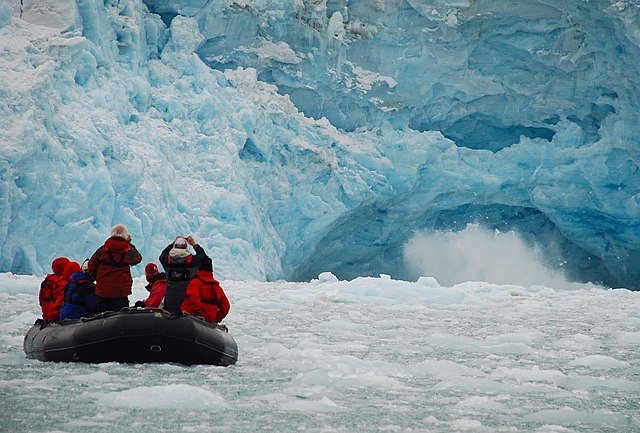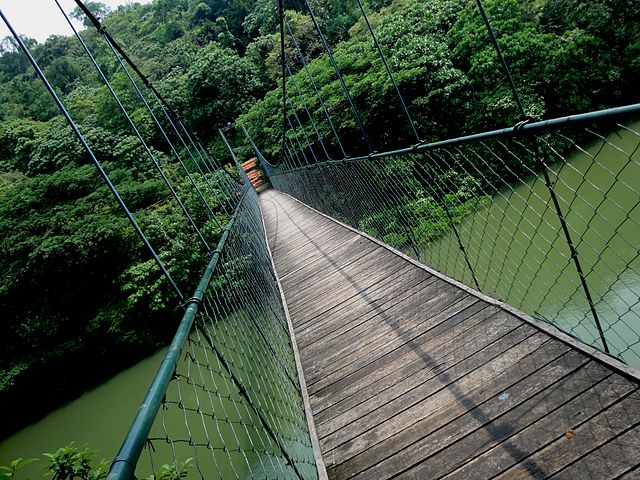Ecotourism is a form of tourism marketed as "responsible" travel to natural areas, conserving the environment, and improving the well-being of the local people. The stated purpose may be to educate the traveler, to provide funds for ecological conservation, to directly benefit the economic development and political empowerment of local communities, or to foster respect for different cultures and human rights.
Ecotourism in Svalbard.
Seal watching near Malusi Islands in Estonia.
Kikoti Safari Camp in Tarangire National Park, Tanzania.
A hanging bridge in ecotourism area of Thenmala, Kerala in India - India's first planned ecotourism destination
Tourism is travel for pleasure, and the commercial activity of providing and supporting such travel. UN Tourism defines tourism more generally, in terms which go "beyond the common perception of tourism as being limited to holiday activity only", as people "travelling to and staying in places outside their usual environment for not more than one consecutive year for leisure and not less than 24 hours, business and other purposes". Tourism can be domestic or international, and international tourism has both incoming and outgoing implications on a country's balance of payments.
Tourists at the Temple of Apollo, Delphi, Greece
The first sunrise seen from the torii gate on the sea, which is considered a sacred place (Ōarai im Japan)
A Japanese tourist consulting a tour guide and a guide book from Akizato Ritō's Miyako meisho zue (1787)
Prince Ladislaus Sigismund of Poland visiting Gallery of Cornelis van der Geest in Brussels in 1624








